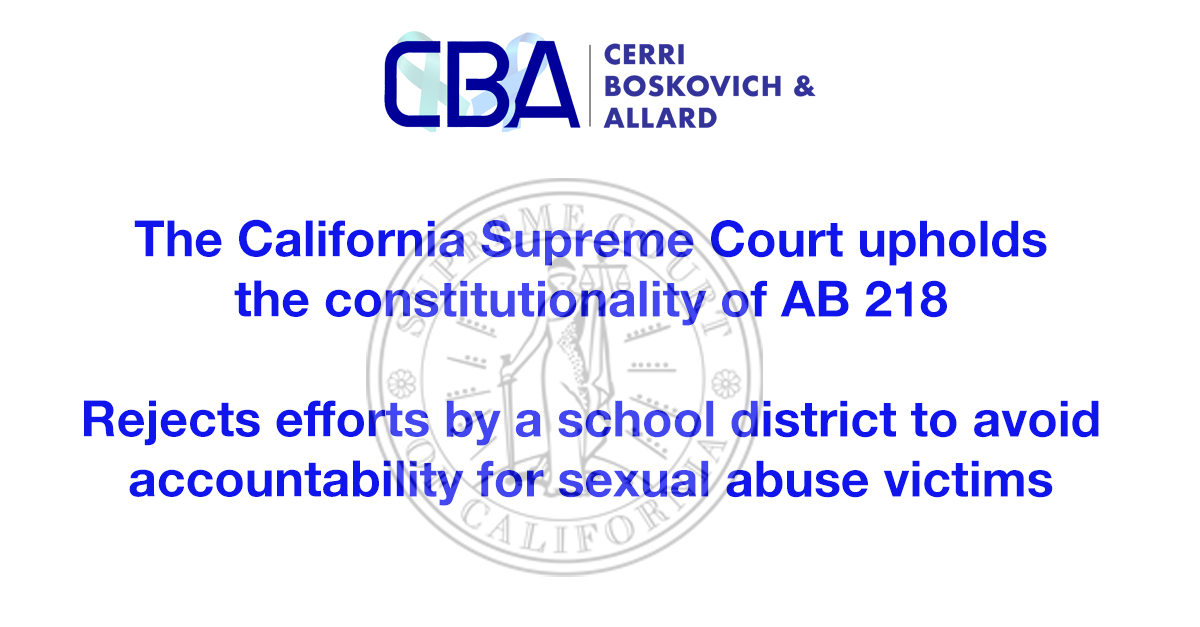- Free Consultation: (408) 289-1417 Tap Here To Call Us
California Supreme Court Denies Review in AB 218 Sexual Misconduct Case Against School District

The California Supreme Court has declined to review a case involving revived sexual assault claims against public entities, with Justice Joshua Groban casting the lone dissenting vote. The case in question is West Contra Costa Unified School District v. Superior Court, which stems from allegations of sexual assault by a high school counselor between 1979 and 1983.
AB 218 provided a three-year window for plaintiffs to bring childhood sexual assault claims against public entities, even if these claims would otherwise be barred by statutes of limitations or claim presentation requirements. The First District Court of Appeal, Division Five, rejected constitutional challenges to this 2019 legislation.
The West Contra Costa Unified School District argued that AB 218 violated the California Constitution’s provision prohibiting the Legislature from making “any gift” to an individual.
This decision upholds the constitutionality of AB 218, potentially allowing more historical sexual assault cases against public entities to proceed in California.
A long history of trying to avoid accountability
For two decades, the California Legislature has consistently enacted laws to provide justice for victims of childhood sexual abuse. However, school districts have persistently exploited legal loopholes, often supported by problematic court decisions, to deny victims their rightful access to justice.
- Prior to AB 218, districts often argued that claims were barred by statutes of limitations, as victims previously had to file by age 26. This was a common defense tactic to get cases dismissed.
- Districts have tried to claim immunity from liability as government entities, though this has been limited by various laws and court rulings.
- Districts frequently argue they had no actual knowledge of abuse occurring and therefore cannot be held liable.
- Some districts have argued they do not have a special duty to protect students from third-party harm, though courts have generally rejected this.
- Districts often try to get cases dismissed on procedural grounds, like improper claim filing under the Government Claims Act.
- When cases proceed, districts may dispute the extent of damages or argue other factors caused a plaintiff’s injuries.
School districts continue to resist efforts to help students of sexual abuse, such as continuing to engage in procedural delays to prolong victims’ pursuit of justice and healing.
The recent California Supreme Court decision rejecting a school district’s efforts to avoid accountability marks a significant step towards upholding the rights of sexual abuse victims and the constitutionality of AB 218.







